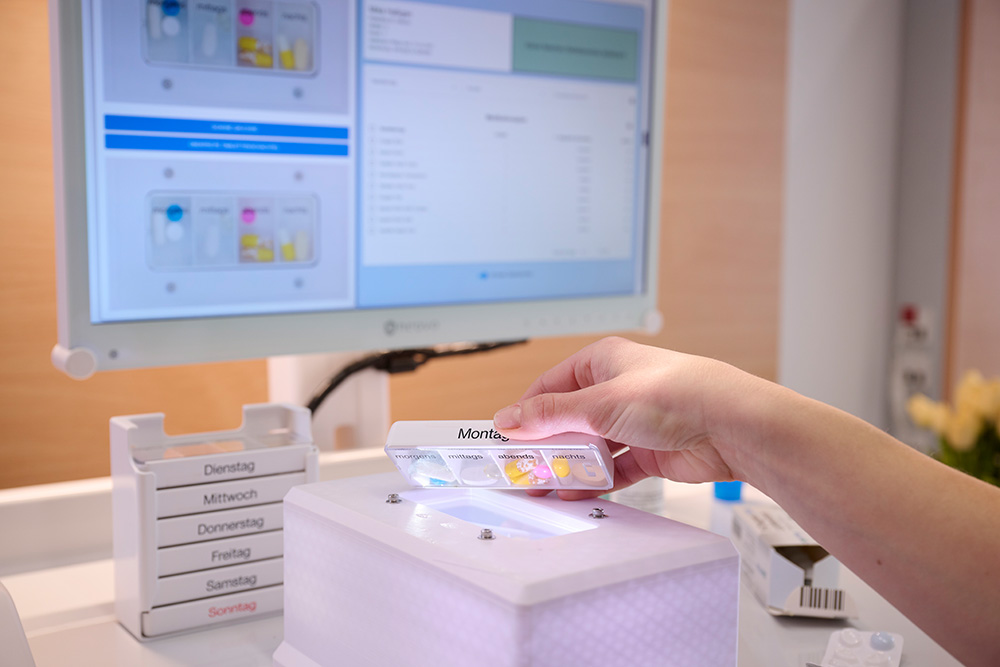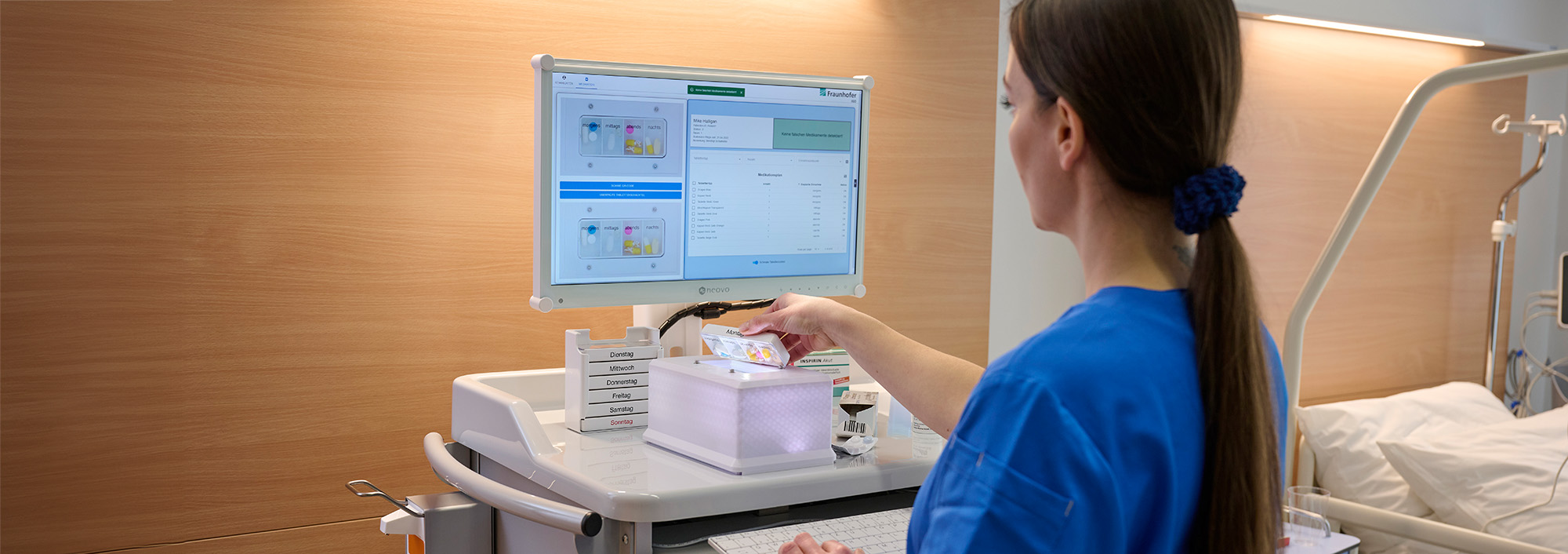Saving Time, Improving Quality
Reducing Caregiver Workload with Digital Solutions
The healthcare sector is facing major challenges: overworked staff, rising costs and an aging society. Fraunhofer IGD is developing digital assistance systems to reduce the workload of caregivers and improve the quality of care. The aim is to recreate a patient-centric culture through digital transformation in healthcare.

(Darmstadt, Germany) There is a shortage of skilled workers in the healthcare sector. And according to the Healthcare Report published by the German State of Hesse, the shortage is only getting worse. Demand for caregivers in geriatrics, pediatrics and long-term care is expected to grow by 50% between 2022 and 2040. Meeting this growing demand will require innovative solutions. Documenting in particular is one of the more time-consuming tasks in the daily care of patients. Researchers at the Fraunhofer Institute for Computer Graphics IGD are working to digitalize and automate these processes.
Fraunhofer IGD is currently developing an application for smartwatches that uses position sensors, hand acceleration and direction of movement and the caregiver’s pulse to recognize various caregiving activities. Tasks such as lifting a patient, making a bed and bathing a resident are documented automatically, eliminating the need for manual documentation. “We don’t want to control the caregivers; instead, we want to improve the quality of care through reliable documentation,” says Florian Kirchbuchner, Department Head for Smart Living & Biometric Technologies. The application is currently being evaluated in a dementia facility and in a Caritas Darmstadt e.V. care facility.
Medication dispensing checks in a matter of seconds
Medication dispensing checks are another way in which the caregiver workload is being reduced. Fraunhofer IGD is developing a solution that uses a camera to scan pills and identify them based on characteristics such as shape, size, color and surface texture. The system then compares them to a database of prescribed medication and alerts caregivers if an error has been made. “The solution significantly reduces medication dispensing errors,” says Kirchbuchner. This is critical since such errors have drastic consequences: It is currently estimated that around 25,000 people die every year from drug interactions and side effects or because they have taken the wrong medication.
The idea is that in the future, caregivers will be able to perform medication checks not only in inpatient facilities, but also when on the go, such as in outpatient home care. “We also want to give family members the ability to perform and document medication checks to ensure that the right medication is given in the right dosage,” says Kirchbuchner.
Camera-based support technologies
Fraunhofer IGD is also developing systems that use cameras to record a patient’s pulse, temperature, movement patterns and emotions to help manage their care needs. Optical image analysis can detect early signs of changes in health status. The system alerts caregivers when patients exhibit unusual behavior, such as frequent trips to the bathroom at night or when someone falls and can’t get back up. A smart camera is especially helpful for elderly people who have difficulty communicating due to conditions such as dementia. “Our goal with our technology is not only to have a better understanding of patients’ health, but also to respect their privacy,” says Kirchbuchner. Protecting sensitive data is therefore a top priority, he adds. All collected data remains within the care facility or clinic and camera images are processed locally, not stored.
Innovative Care Team Association founded
To further promote digital transformation in the healthcare sector, Fraunhofer IGD helped to establish the Innovative Care Team association. Its purpose is to foster collaboration between research, industry and care facilities and to implement solutions in practical settings. In addition to Fraunhofer IGD, the founding members include the Technical University of Darmstadt, the Caritas Association Darmstadt, the Protestant University of Applied Sciences Darmstadt and other partners. To put the latest research findings into practice and facilitate knowledge transfer, the association plans to establish a research and transfer center for digital healthcare that will be affiliated with a nursing home facility.
 Fraunhofer Institute for Computer Graphics Research IGD
Fraunhofer Institute for Computer Graphics Research IGD